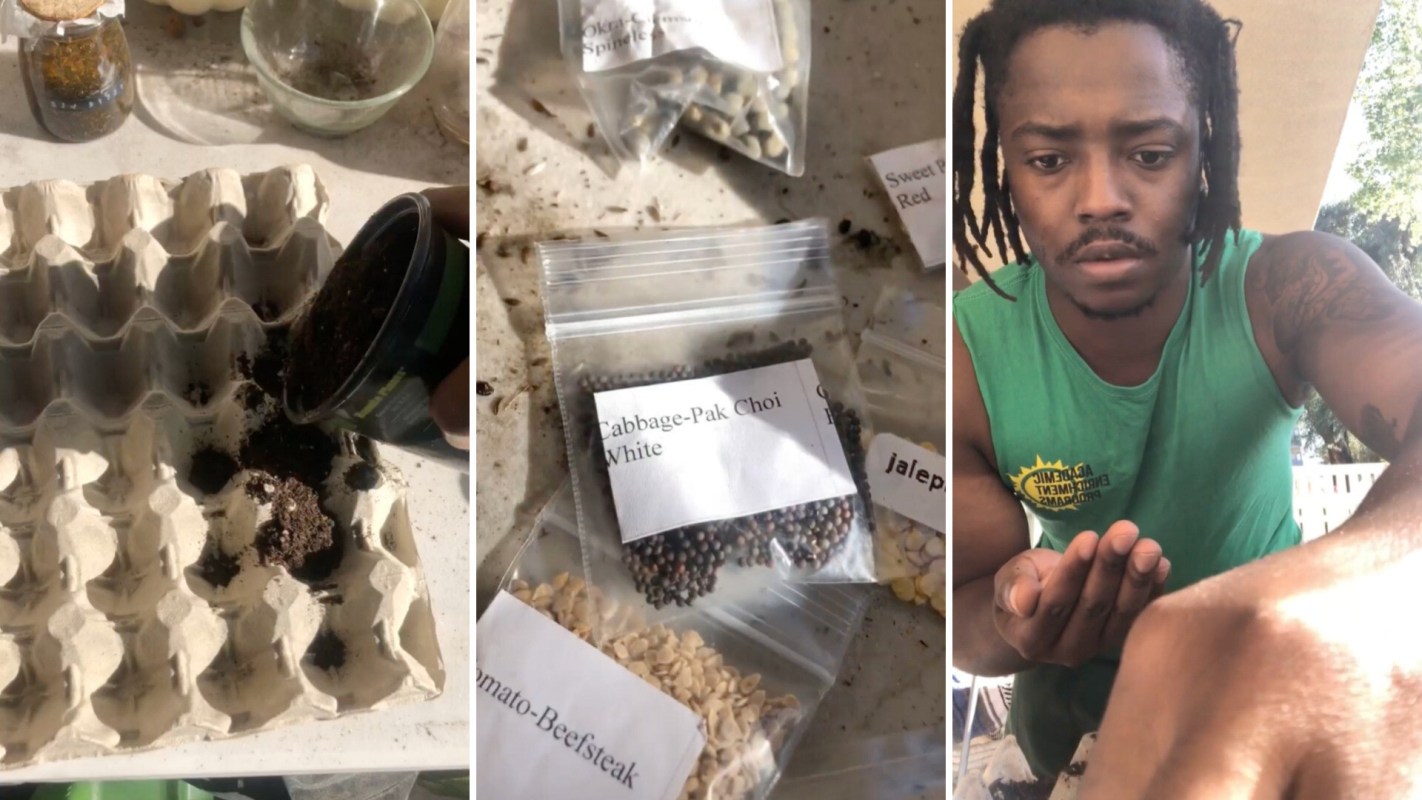If you're planning to welcome spring by getting your seeds started, you can do it sustainably, as one Instagrammer showed when he shared how he's getting his garden going.
The scoop
Andre 1k (@andre_1k) is a podcaster and rapper who occasionally posts about sustainability and gardening. In one helpful video, he shows viewers how he gets his garden started from seeds.
"I'm about to try to start these seeds in an old egg carton man," he opens the clip saying. "Gotta use what you got."
He shows what kinds of seeds he's planting, including collards and peppers, then fills the carton with dirt and makes small holes in each well. Next, he places one seed in each newly made hole, reminding viewers to "make sure you got a little label."
Finally, he sprays down the whole egg carton, telling his followers to keep the seeds moist. "I hope they all come up," he says.
In the Instagram caption, Andre wrote: "Plants are resilient and can grow anywhere with the right environment."
How it's helping
Starting seeds in an egg carton is a great way to save money during planting season. Starter planter sets can cost up to $40. Another plus side to using egg cartons is that they are biodegradable, so you can rip or cut them up and pop the whole little cup into the garden.
Other types of food containers can also be reused during planting season, from plastic boxes to toilet paper rolls. Finding ways to reuse your trash helps reduce your impact on the planet.
Waste that ends up in landfills is a big contributor to the warming of our planet. Methane is a gas that is even more potent than carbon dioxide, and landfills are the third-largest contributor in the United States.
🗣️ Which of these groups has the biggest role to play in reducing food waste?
🔘 Grocery stores 🛒
🔘 Restaurants 🍝
🔘 Individuals 🗑️
🔘 The government 👩⚖️
🗳️ Click your choice to see results and speak your mind
Planting a garden using recycled items gives you double the benefits since plants are great at capturing carbon and polluting gases from the air in a process called carbon sequestration. Plus, there is some evidence that gardening at home can have a lower carbon footprint than buying vegetables at the store.
What everyone's saying
Folks in the comments praised this use of recycled materials.
"Love this," one wrote.
Another viewer was hopeful for the OP's garden, stating, "Can't wait to see what happens! I love seeing your plant journey!! Hoping for lots of sprouts and a big harvest in the future!"
Join our free newsletter for easy tips to save more, waste less, and help yourself while helping the planet.









